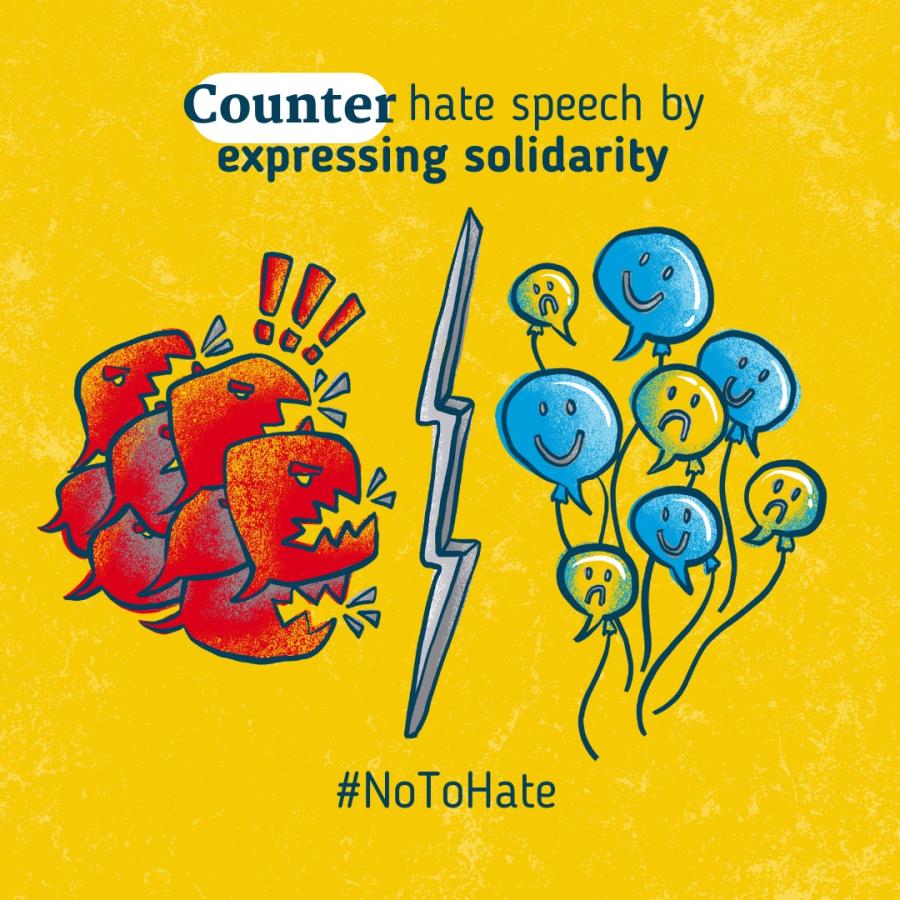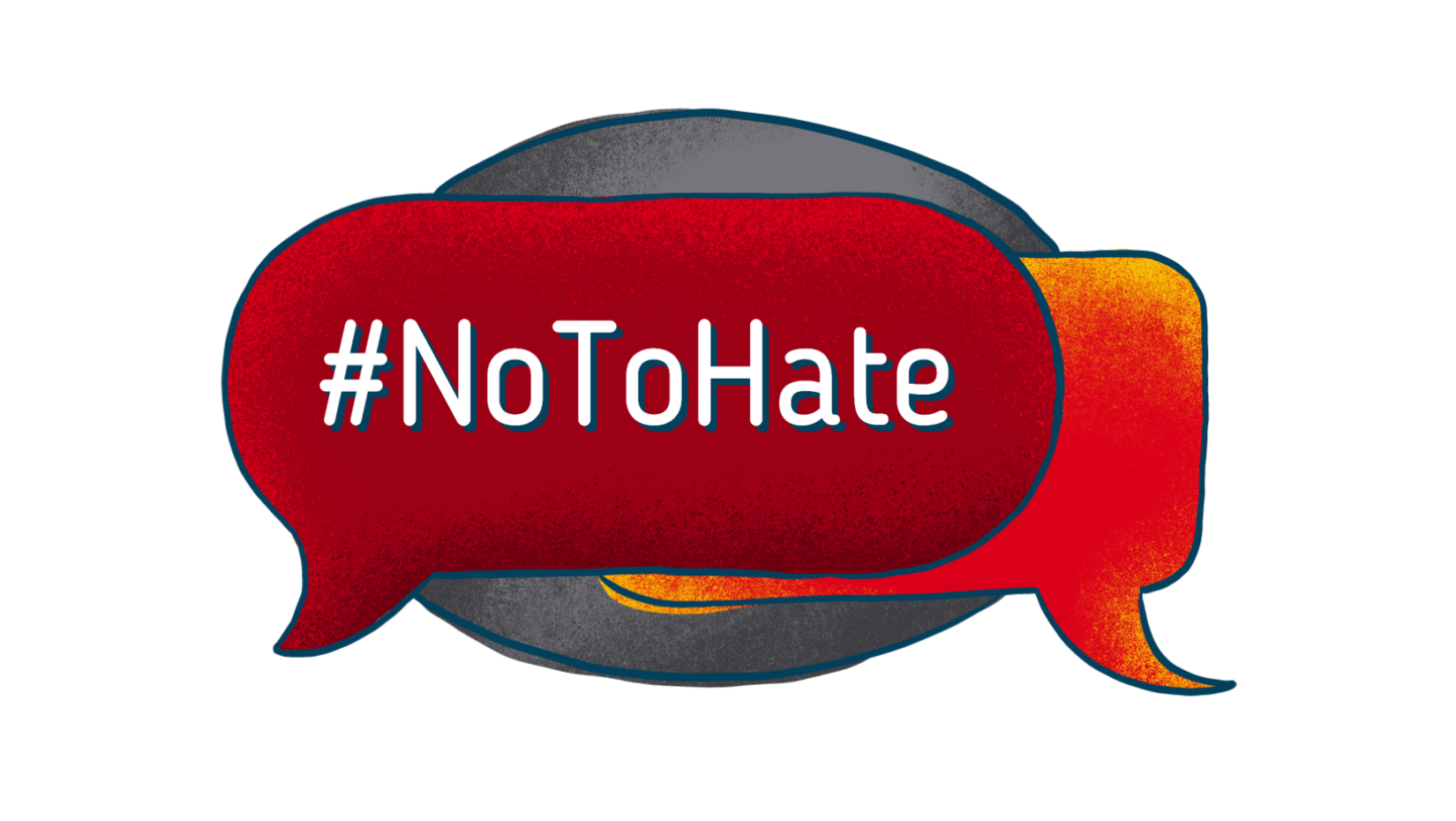
Say No To Hate
Hate speech is rising around the world
The United Nations has a long history of mobilizing the world against hatred of all kinds to defend human rights and advance the rule of law. The impact of hate speech cuts across numerous existing United Nations areas of focus, from human rights protection and prevention of atrocity crimes to sustaining peace and achieving gender equality and supporting children and youth.
Because fighting hate, discrimination, racism and inequality is at the core of United Nations principles and work, the Organization is working to confront hate speech at every turn. This principle is enshrined in the United Nations Charter, in the international human rights framework and in the global efforts to achieve the Sustainable Development Goals.

In common language, “hate speech” loosely refer to offensive discourse targeting a group or an individual based on inherent characteristics - such as race, religion or gender - and that may threaten social peace.
Under International Human Rights Law, there is no universal definition of hate speech as the concept is still widely disputed especially in regards to its relation to freedom of opinion and expression, non-discrimination and equality.
With the aim to provide an unified framework for the UN system to address the issue globally, the United Nations Strategy and Plan of Action on Hate Speech defines hate speech as…“any kind of communication in speech, writing or behaviour, that attacks or uses pejorative or discriminatory language with reference to a person or a group on the basis of who they are, in other words, based on their religion, ethnicity, nationality, race, colour, descent, gender or other identity factor.”
"Social media provides a global megaphone for hate."
- António Guterres, United Nations Secretary-General, 2021
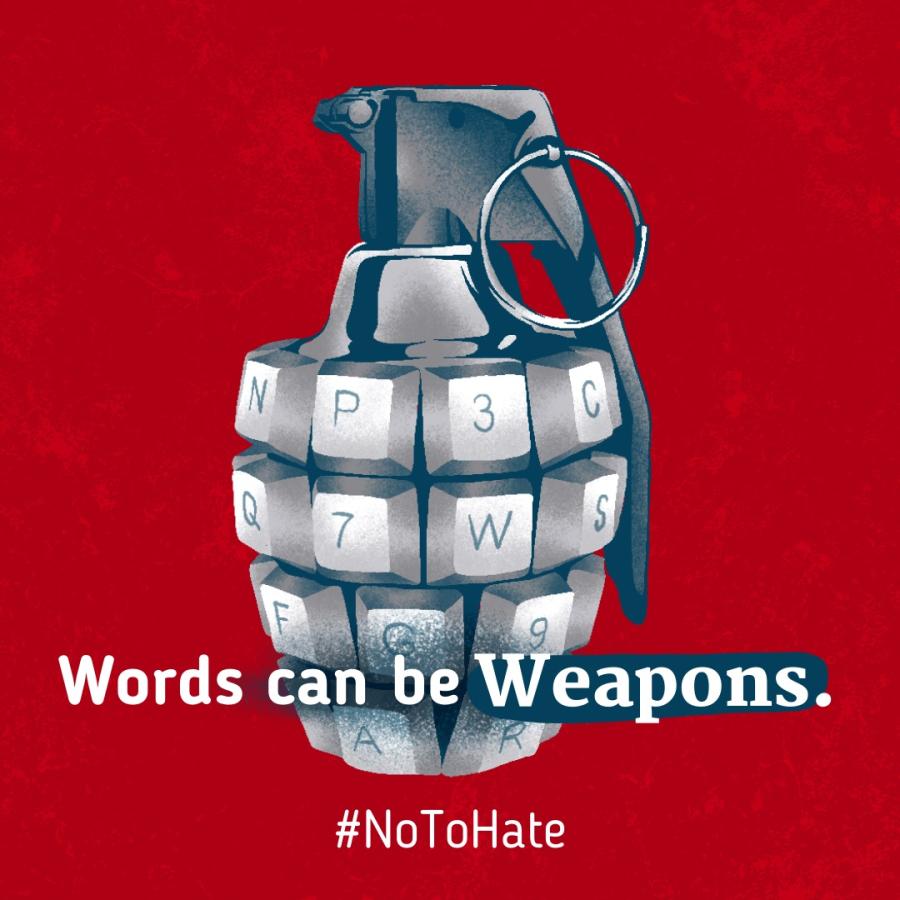
In the debate surrounding hate speech, the necessity to preserve freedom of expression from States or private corporations’ censorship is often opposed to attempts to regulate hateful expressions, in particular online.
Freedom of opinion and expression is, indeed, a cornerstone of human rights and a pillar of free and democratic societies, as it supports other fundamental rights, such as the right to freedom of religion, to peaceful assembly and to participate in public affairs. It is undeniable that digital media including social media have contributed to sustaining the right to seek, receive and impart information and ideas. Therefore, legislative efforts to regulate free expression are, unsurprisingly, raising concerns that attempts to curb hate speech could also contribute to silencing dissent and opposition.
As the key means to counter hate speech, the United Nations supports more speech - not less - and holds the full respect of freedom of expression as the norm. Therefore, restrictions to expression must remain an exception, as defined in accordance with International Human Rights Law, in order to prevent harm and ensure equality, and public participation of all. In addition to the relevant International Human Rights Law provisions, the United Nations Rabat Plan of Action provides key guidance to States on the distinction between freedom of expression and incitement to discrimination, hostility and violence which is prohibited under criminal law. While determining when the potential of harm is high enough to justify the prohibition of speech is still subject to much debate, States are also invited to implement alternative tools such as education and the promotion of counter-messages in order to address the whole spectrum of hate expressions, on and offline.
“Addressing hate speech does not mean limiting or prohibiting freedom of speech. It means keeping hate speech from escalating into something more dangerous, particularly incitement to discrimination, hostility and violence, which is prohibited under international law.”
- António Guterres, United Nations Secretary-General, May 2019
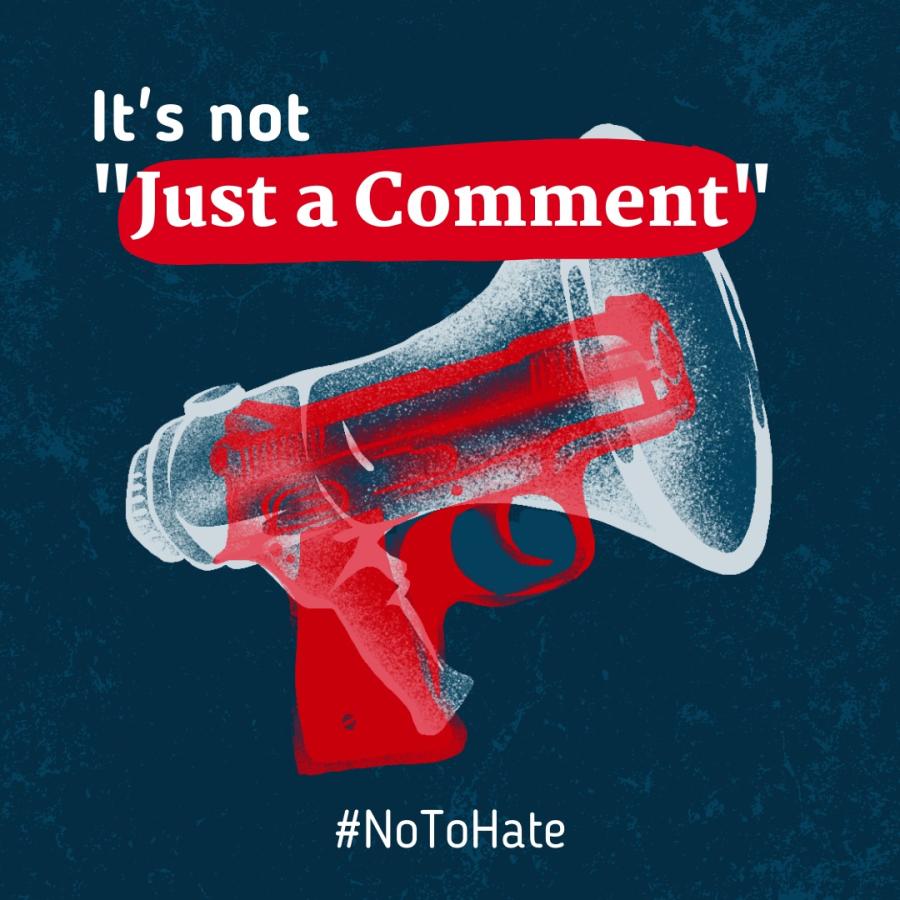
Hate speech occurs in all societies, whether offline or online. It can sometimes be hard to assess when a comment is meant as hate speech – especially when expressed in the virtual world. It can also feel overwhelming to try to deal with obviously hateful content.
However, there are many ways you can take a stand, even if you are not personally the victim of hate speech. And you can make a difference. The following tips may be helpful.
![]()
Pause
Refrain from making any hateful comments yourself and/or relaying such content. Whether online or offline, we should all act responsibly to stop the spread of hate and misinformation. Check out the United Nations #PledgetoPause campaign to find out why it’s important to take a moment to pause before you share content online. Learn how to do this responsibly – whether you’re forwarding a message, retweeting a story or watching a video in your feed.
![]()
Fact-check
In the digital world, it’s common to come across misinformation and harmful content, but it’s relatively easy to verify content you find is reliable. To detect false and biased information, including hate speech propaganda, be sure to check the content’s origin with the help of search engines, fact-checking tools and other reliable sources. You can also download images and run them through image search tools to find out where they appeared first.
![]()
React
Whenever possible, do not remain silent, even when it is others who are targeted. Speak up calmly but firmly against hate speech and call it out to make clear that you do not agree with the content of the statement. When relevant, refute misinformation with facts, providing reliable sources to back up your argument.
![]()
Challenge
One way to tackle hate speech is to spread your own counter-speech to make sure hate is not the dominant narrative. You can undermine hateful content with positive messages that spread tolerance, equality and truth in defense of those being targeted by hate.
![]()
Support
Taking a public stand for, and extending solidarity to, people who are the targets of hate speech demonstrates that rejecting hate is the responsibility of every individual.
![]()
Report
Most online platforms and communities have rules to keep user discussions respectful and will let you easily report hate messages to administrators or moderators. Read social media platform guidelines and tips to protect users from harassment and hate speech. For more serious cases – which may constitute incitement to violence, harassment and/or threats prohibited by law – notify organizations fighting hate speech and/or file a complaint with police (or the public prosecutor). Some countries have online tools to make reporting hate speech easier.
![]()
Educate
You can help raise awareness of hate speech -- online or offline – simply by engaging with your family and friends in conversations about how hateful content can harm societies. Advocate for responsible behaviour and share public campaigns and educational resources.
![]()
Commit
Consider joining an NGO or other civil society initiative that works to address the issue of hate speech in your community.
There are historical precedents showing that hate speech can be a precursor to atrocity crimes.
In recent years, the world has witnessed several cases of mass atrocity. In many of these situations, hate speech has been identified as a common “precursor to atrocity crimes, including genocide”. While the use of social media and digital platforms to spread hateful rhetoric is relatively recent, the weaponization of public discourse for political gain is unfortunately not new. As history continues to shown, hate speech coupled with disinformation can lead to stigmatisation, discrimination, and ultimately large scale violence.
The Holocaust
The Holocaust did not start with the gas chambers, but with hate speech against a minority.
The Nazi regime adopted laws and regulations to crush Germany’s independent media, replacing it with state-controlled radio and print media that disseminated hate speech, antisemitic, racist stereotypes and disinformation. The media campaigns contributed significantly to the environment in which atrocity crimes were normalized, and facilitated the Holocaust during which the Nazis and their racist collaborators murdered six million Jewish children, women and men; systematically persecuted and murdered Roma; and committed atrocity crimes against people with disabilities, people of African descent, LGBTQI, Poles, Soviet prisoners of war and political dissenters. Undeniably, the Holocaust did not start with the gas chambers, but with hate speech against a minority.
The Cambodian Genocide
Hateful discourse systematically designated intellectuals, opponents and city dwellers, ethnic and religious minorities as the “enemies” of the people.
In the 1970s, the Khmer Rouge movement of Pol Pot led an intense propaganda campaign in order to mobilise the rural part of the population and seize power. Hateful discourse systematically designated intellectuals, opponents and city dwellers, but also Cambodia’s ethnic and religious minorities as the “enemies” of the Cambodian people. It is estimated that 1.5 to 2 million Cambodians died under the Khmer Rouge regime, from 1975 to 1979.
The 1994 Genocide Against the Tutsi in Rwanda
Decades of hate speech exacerbated ethnic tensions by spreading unfounded rumours and dehumanizing the Tutsi.
The horrific outcome of decades of hate speech that exacerbated ethnic tensions by spreading unfounded rumours and dehumanizing Tutsi citizens was brutally displayed when hate propaganda relayed by the infamous Radio Libre des Mille Collines incited the Hutu majority to kill their fellow Tutsi citizens during the 1994 genocide. It is estimated that more than one million people - from babies to the elderly - overwhelmingly Tutsi, but also moderate Hutu, Twa and others who opposed the genocide – were systematically killed in less than three months and that an estimated 150,000 to 250,000 women were raped.
The Srebrenica Genocide in Bosnia and Herzegovina
Constant nationalist propaganda throughout party-controlled media channels demonized the Bosnian Muslim population.
The enabling role of hate and disinformation media campaigns in inciting and legitimating war crimes has also been established in the Bosnian war (1992-1995). In Serbian majority areas, constant nationalist propaganda throughout party-controlled media channels demonized the Bosnian Muslim population - among other groups - as violent fundamentalist enemies plotting against the Serbs, while dissent was silenced. In July 1995, in just a matter of days, the Serbian forces killed 8,000 Bosnian Muslim men and boys in the town of Srebrenica, a Muslim enclave in eastern Bosnia and a "safe area" under UN protection. The Bosnian War atrocities left more than 100,000 people dead and 20,000 missing. A quarter of a century later, hate speech, glorification of war criminals coupled with denial of genocide and other atrocity crimes are still rampant in Bosnia and Herzegovina, including in political discourse and the media, highlighting its failure to confront its past.
The Rohingya refugee crisis in Myanmar
A campaign of hate and misinformation was conducted, loaded with derogatory and dehumanizing language against the Rohingya Muslim minority.
A campaign of hate and misinformation loaded with derogatory and dehumanizing language against the Rohingya Muslim minority of the country has been linked to the commission of grave human rights violations in Myanmar, from 2012 to 2017. The Independent International Fact-Finding Mission on Myanmar (IIFFMM) - an international Investigative mechanism established by the United Nations Human Rights Council - released a report documenting the widespread hate propaganda led by State officials, politicians, military and religious leaders and the systematic atrocities such as “killings, rapes and gang rapes, torture, forced displacement and other grave rights violations” against the Rohingya minority. By August 2018, it is estimated that over 725,000 Rohingya fled to Bangladesh - creating the fastest growing refugee crisis in the world - and that tens of thousands people have been raped.
“Over the past 75 years, hate speech has been a precursor to atrocity crimes, including genocide, from Rwanda to Bosnia to Cambodia.”
- United Nations Secretary-General António Guterres, June 2019
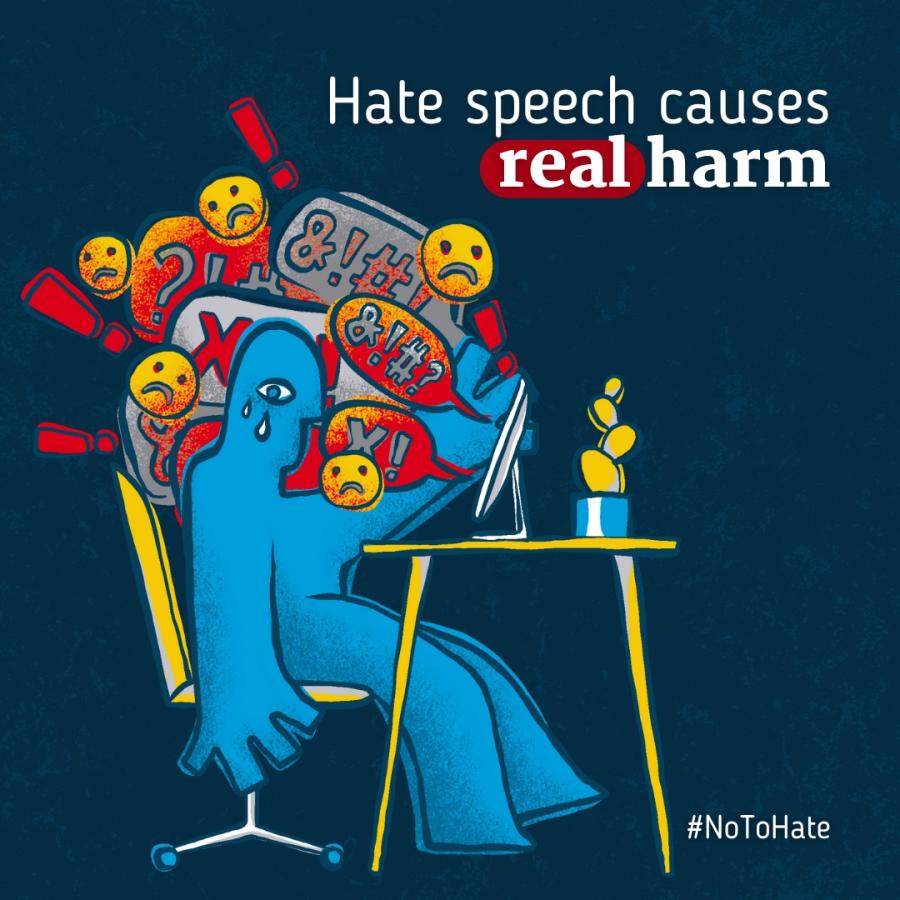
As early as May 2020, United Nations Secretary-General António Guterres raised the alarm about the “tsunami of hate and xenophobia, scapegoating and scaremongering around the world” that the Coronavirus pandemic unleashed and made a Global Appeal to address and counter the specific issue of COVID-19 related hate speech.
The UN guidance Note on Addressing and Countering COVID-19 related Hate Speech released shortly after clarifies that “‘COVID-19 related hate speech’ encompasses a broad range of disparaging expressions against certain individuals and groups that has emerged or been exacerbated as a result of the new coronavirus disease outbreak – from scapegoating, stereotyping, stigmatization and the use of derogatory, misogynistic, racist, xenophobic, Islamophobic or antisemitic language”. This hateful content is often accompanied with disinformation and misinformation in relation to the pandemic and disseminated through traditional and/or digital media.
In a context of a global health crisis, where access to safe and reliable information may be a matter of life or death, the consequences of COVID-19 related hate speech can be disastrous, in the short and the long run, and for both the targeted groups and the society at large. Covid-19 hate speech can significantly worsen pre-existing situations of inequalities, intolerance and discrimination - especially towards minorities and/or foreigners - and may expose those targeted to violence, social, political and economic exclusion - heightening the disproportionate effects of the pandemic even more on these underprivileged communities as a result. Covid-19 hate speech and disinformation may also lead to division and social unrest at a time when unity and cohesion are more needed than ever, in particular when instrumentalized by influential figures - like political and religious leaders - and/or when it is part of a coordinated effort to harm.
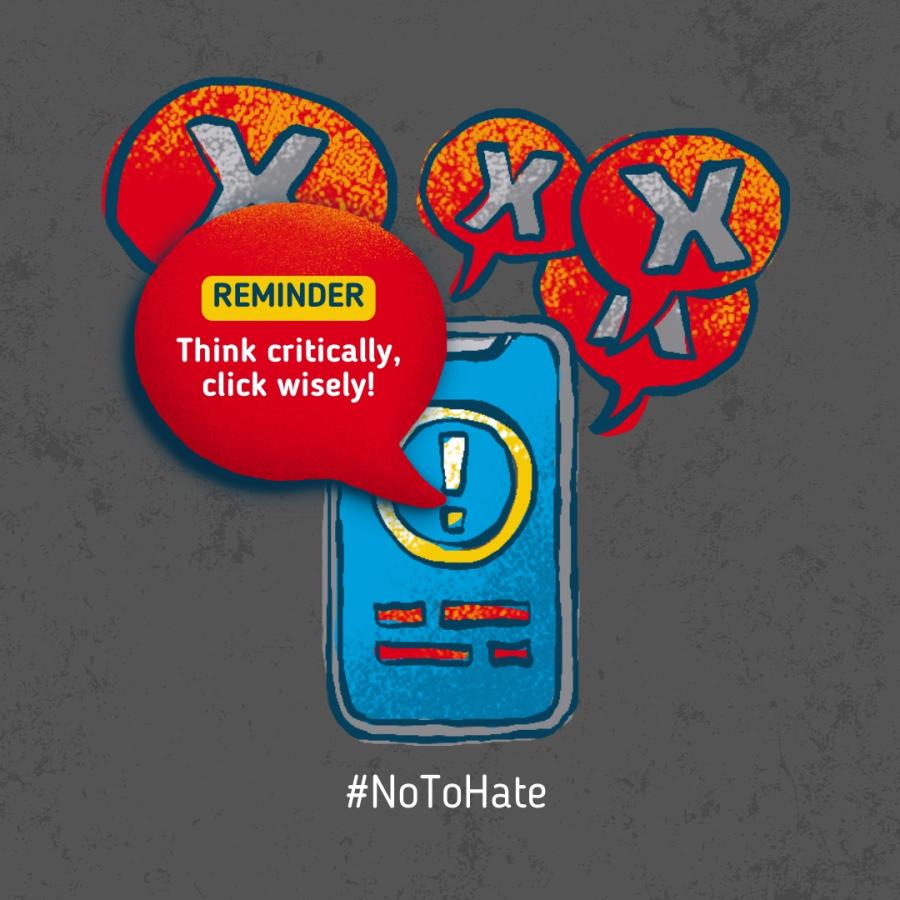
Minority groups
National, ethnic, religious or linguistic minorities are a recurring target of hate speech, including online. According to the Special Rapporteur on Minority issues’ thematic report on hate speech, social media and minorities, “where disaggregated data is available on hate speech in social media or on hate crimes, approximately 70 per cent or more of those targeted tend to belong to minorities”. Members of minority groups are particularly disadvantaged as they are also more likely to be affected by restrictions and removal measures of social media content moderation systems, in addition to being the main targets of hate speech.
Recent incidents of hate speech, including racist slurs and - for the most serious cases - incitement to violence or genocide, reflected a truly global and worrisome trend targeting minority groups as diverse as the Igbo people in northern Nigeria, the Rohingya in Myanmar, the Roma and the Sinti in Europe, or People of African descent among many others.
In addition, this trend has been further exacerbated by extremists groups and populist figures worldwide as the Covid-19 pandemic is weaponized to promote anti-minority narratives, disinformation and conspiracy theories scapegoating Jews, Muslims, Christian minorities, people of Asian descent especially those perceived as Chinese, and many more communities for the spread of the virus.
Migrants and refugees
The scale of international migration has substantially increased in the past 20 years and the recent “migrants / refugees crisis” has prompted millions of people worldwide to escape poverty, conflicts, violence and persecution. In 2020, the United Nations estimated that about 281 million people were living outside their country of origin.
Traditionnaly, migrants and refugees tend to be particularly vulnerable to racism, discrimination and related intolerance. However, the trend of hate rhetoric and incitement against migrants and refugees worsened with the recent increase in the number of refugees, asylum-seekers and migrants across various regions of the world – from Africa to the Middle East and South-Asia, and Europe to the Americas - where a large number of newcomers has put a strain on governments and taken over the public debate.
Increasingly, migrants and refugees are portrayed as unable to adapt to the local customs and life, and routinely associated with fears of violence and terrorism, while their positive contribution to societies is ignored. In a context where host populations feel confronted with challenges related to the arrival of newcomers with diverse backgrounds, cultures and religions, stereotyping and polarisation started to characterize domestic debate, dominate media coverage and shape national politics, while harsher measures targeting migrant and refugee communities are put in place. As extremist groups and politicians, but also news agencies, fuel hate speech against migrants and refugees to serve their own populist agenda, acts of intimidation and violence have spiked and disinformation has intensified, especially in times of pandemic.
The impact has already proven disastrous as migrants across the world face discrimination and economic hardship and thousands of refugees and asylum seekers live in dire conditions, or have been pushed back or deported to dangerous environments.
Women and girls
Women and girls often suffer from complex and intersectional discrimination, which renders them vulnerable to hate propaganda. The Special Rapporteur on promotion and protection of freedom of opinion and expression reported that gender-based hate speech and disinformation are used extensively offline but also online to silence women as “in the digital age, the spate of online violence, hate speech and disinformation often compel women to self-censor, limit what they post or leave platforms.
Such online gender-based violence includes both hateful speech and hostile behaviour, often sexist or misogynistic, such as digital threats or incitement to physical or sexual violence. The Special Rapporteur on violence against women, its causes and consequences has identified many forms of online hate affecting particularly women such as “sextortion” (non-consensual distribution of intimate content), doxing (publication of private information), trolling (producing content for the purpose of annoying, provoking or inciting violence against women), online bullying and harassment, online stalking (repeated harassment perpetrated by means of mobile phones or messaging applications), online sexual harassment and “revenge porn” (non-consensual online dissemination of intimate images).
Furthermore, women are more likely to be targeted online on the basis of their intersectional identities, most often facing racist hate speech. Women with public profiles - such as human rights defenders, politicians, journalists, video gamers, athletes and bloggers - or women belonging to national, ethnic, religious and linguistic minorities, women and girls with disabilities, displaced and LGBTI individuals, as well as other at-risk groups are particularly targeted.
The harm caused by gender-based hate speech and disinformation is real. Not only is it - at an individual level - affecting the mental and physical health of the women targeted, causing them professional and reputational damage, and in extreme cases, escalating to physical violence and even murder, but online attacks against women often lead to self-censorship, and therefore, limit women’s freedom of expression, their full participation in public life and affect democracy and the whole of society.
Furthermore, gender-based hate speech - as with all forms of gender-based violence - increases in emergencies and in conflict settings and can lead to the incitement of conflict-related sexual violence and atrocity crimes (genocide, crimes against humanity and war crimes).
Sadly, this phenomenon has only worsened during the pandemic. According to UN Women - the United Nations Entity for Gender Equality and the Empowerment of Women - online abuse against women has intensified, alongside a rise in offline domestic violence.
LGBTQI+
Lesbian, gay, bisexual, transgender, intersex and people who do not conform to gender stereotypes in general are routinely exposed to discrimination, stigma, hatred and abuse on the basis of their sexual orientation and/or their gender identity. In many cases, the sole the perception of their homosexuality or transgender identity is enough to put them at risk of abuse.
The specific challenges faced by LGBTQI+ people tend to be even more grievous as many countries criminalize non-conforming sexual orientation and gender identity - whether on grounds of morals, religion, traditional values and/or child protection - fostering and normalising intolerance, stigmatization and even violence as a result. Furthermore, LGBTQI+ individuals holding intersecting marginalised identities (for instance as members also of a minority group, migrants, refugees, or people with a disability) tend to face even more frequent and concerted attacks.
The rhetorics of exclusion targeting the LGBTQI+ community generally exploit deep-rooted stigma and prejudice, raising fear and moral concern that the mere existence of LGBTQI+ people may endanger the whole community, and therefore perpetuating the risk of discrimination and violence against them. As noted by the Independent Expert on sexual orientation and gender identity, these narratives - bearing the hallmarks of hate speech - have managed to capture and weaponise the popular imagination. Alarmingly, a significant proportion of hate narratives and vilification of LGBTQI+ people are created or amplified by influential figures such as political leaders, government officials, the media, or religious leaders.
Last but not least, the COVID-19 pandemic has created a context conducive to increased persecution as hate speech that explicitly or implicitly incites violence against LGBTQI+ people has been on the rise, including discourse by prominent political or religious leaders blaming the pandemic on the existence of LGBTQI+ members of the community, whether offline or on social media.
Vocational targets
As highlighted in the latest World Trends in Freedom of Expression and Media Development report (UNESCO, 2019), the “prevalent use of rhetoric that is hostile to the media as well as the discrediting of newsworthy and accurate journalistic reportage” - labelled as “fake news” - is a worrying trend. The dissemination of such narratives has not only contributed to undermine collective trust in the media and news reporters, but it has in some countries also “helped foment in parts of the population a sense of resentment”, deteriorating the work environments of journalists and media workers. When weaponized by political leaders, such narratives may not only contribute to the spread of disinformation but also curtail freedom of expression by threatening and muzzling journalists. Moreover, anti-media discourse appears “to have sometimes served as a justification for perpetrators of attacks against journalists”, raising concerns regarding the public vilification of and attacks on media workers.
In the context of the Covid-19 pandemic, where disinfodemic runs rampant with consequences that may be fatal for those left unable to access reliable information and implement scientifically- grounded preventive measures, journalists but also many professionals such as medical and health care workers, human rights defenders, whistle-blowers, and peace-building workers are also being subjected to hate speech and attacks as a result of their work in addressing or reporting on the pandemic; and professionals who expose disinformation may find themselves targets of hate and disinformation-fuelled attacks in return.
“We can draw a direct line between hate speech and antisemitic, anti-Muslim and anti-Christian violence. And we see it mirrored in acts of misogyny against women, and violence against refugees, migrants, and minorities, including people of Asian descent who were outrageously blamed for COVID‑19.”
— United Nations Secretary-General António Guterres, October 2021
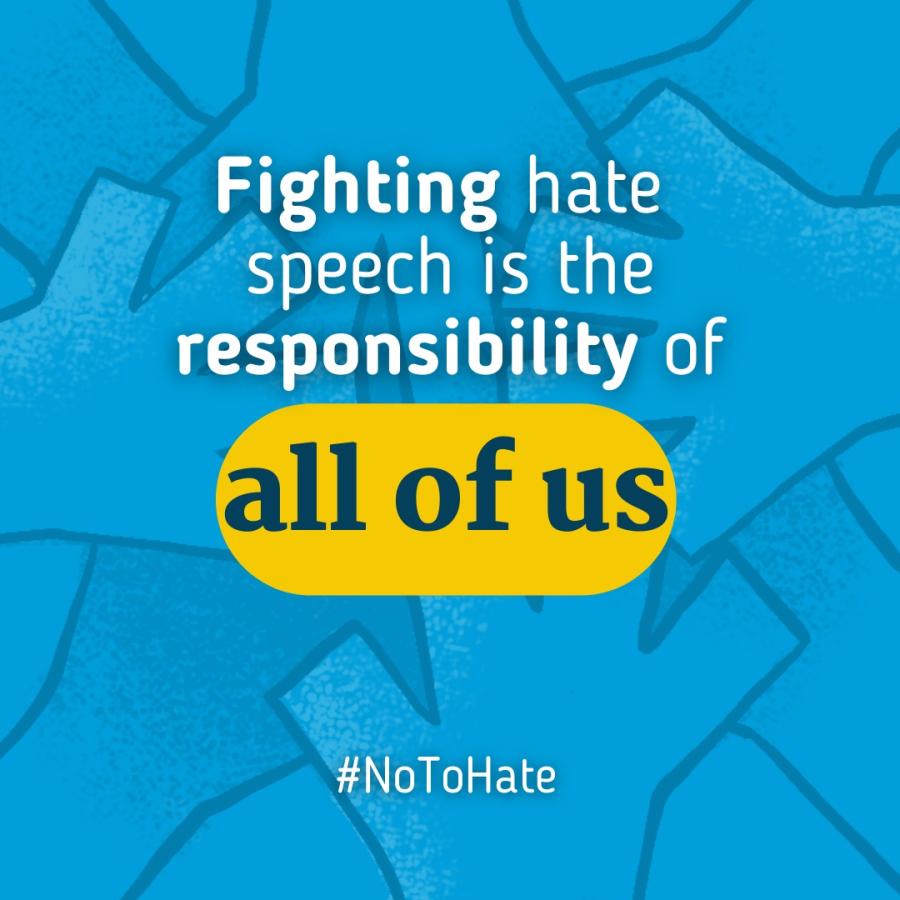
As history has shown, genocide and mass atrocities begin with words of hate. Such a lesson highlights our collective responsibility to address hate speech in the present to prevent potential harm in the future. However, addressing and countering hate speech effectively require a holistic approach that goes beyond legislation to sanction and criminalize hate speech, and must rely on prevention too.
The United Nations Strategy and Plan of Action on Hate Speech places specific emphasis on the transformative power of education as a fundamental tool to address the root causes and drivers of hate speech, and to promote peaceful, inclusive and just societies for all, in line with the 2030 Agenda and Sustainable Development Goals.
Tackling the issue of hate speech from an educational perspective requires strengthening educational policies and programmes with specific measures aiming to address and counter hate speech - drawing upon Global Citizenship Education and Media Information Literacy initiatives and adopting multi-stakeholder, interdisciplinary and society-wide approaches - in order to help young people engage with media and information, develop critical thinking and life-long learning skills, and also become active citizens who support peace and human rights.
Moreover, as online environments have become echo chambers for hateful rhetoric, the need to strengthen digital literacy as part of global citizenship education has become ever more salient in order to empower audiences to critically analyze and counteract hate speech not only offline but also online. In the digital world too, key competencies to build resilience against hate speech include Media and Information Literacy that empowers citizens with the critical thinking skills necessary to adequately assess information and develop a sense of responsibility for one’s online behaviour.
In addition, building digital citizenship requires fostering knowledge and understanding of human rights and freedom of expression throughout human rights education and mainstreaming social and emotional learning, a powerful tool to address and counter harmful social norms and practices, including in crisis situations.
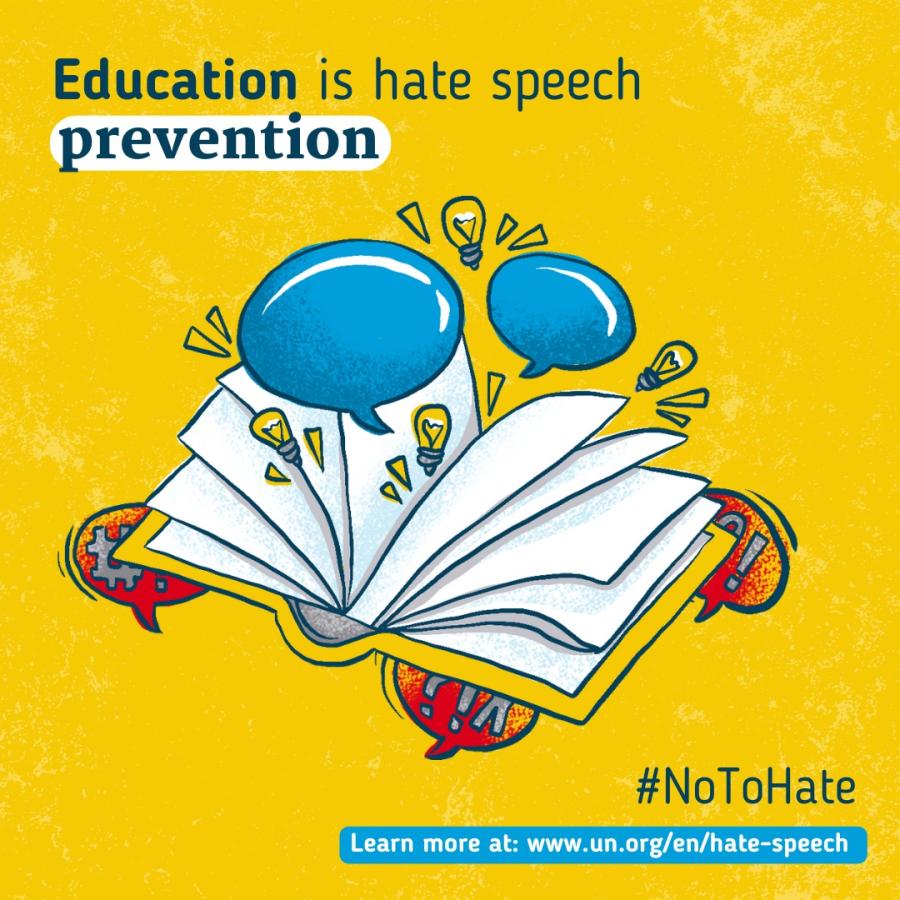
To develop effective responses and mitigate the impact of hate speech on our societies, it is essential to monitor and analyse this phenomenon first. This means better understanding of the dynamics of hate speech, including the motivations behind its dissemination. Such undertaking is particularly important in the worsening context of crisis and fear.
However, the lack of a universal definition of hate speech makes it harder to study this phenomenon on a global scale. Further difficulties include the diversity of national legal frameworks, the social, cultural and historical contexts associated with hate speech, its local specific linguistic subtleties, the variety of online communities and forms of online hate speech to name a few. Another key challenge is that victims may not consistently report incidents of hate speech to the relevant authorities, for various reasons starting from a lack of awareness of what constitutes hate speech to start with. In addition, identifying online hate speech for research purposes is also confronted with the opaque nature of proprietary algorithms and the lack of access to data held by private companies.
In a global digital world, internet companies must be able to counter the spread of online hate speech on their platforms, in compliance with international human rights standards. Even though social media companies have started reporting the amount of flagged and/or removed content on their platform, the efficiency of their action is still called into question. Among other issues, the social media companies’ reliance on automated detection (rather than human intervention-based methods) to identify and remove hate speech may be prone to errors and could infringe user’s freedom of expression. Such issues highlight the need for greater transparency on how hate speech policies are implemented and evaluated.
As the United Nations Strategy and Plan of Action on Hate Speech identifies a series of priority areas for combating hate speech, several United Nations entities are currently engaged in research, in partnership with relevant stakeholders, in order to “recognize, monitor, collect data [on] and analyse hate speech trends”.
